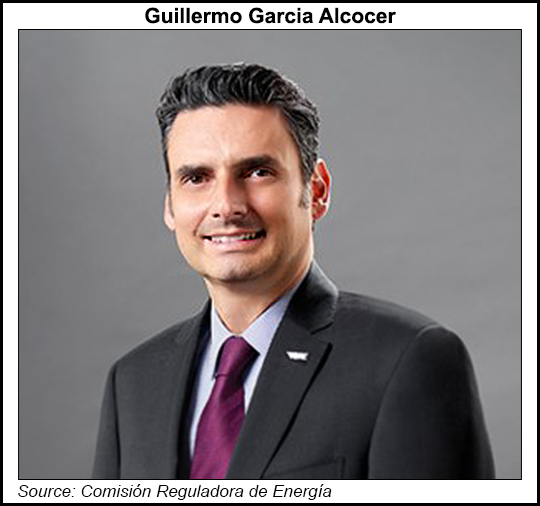Regulatory | NGI All News Access | NGI The Weekly Gas Market Report
CRE President Resigns as Regulators Continue to Lose Clout in Mexico’s Energy Sector
Guillermo García Alcocer, the president of Mexico’s downstream energy regulator, Comisión Reguladora de Energía (CRE) resigned this week, saying that he had lost his powers to implement policy.

Following the arrival of new members of the commission appointed by the government of President Andrés Manuel López Obrador, García Alcocer said in a resignation letter that the newcomers represented “a majority view that is different to mine.”
López Obrador had already put it more bluntly. García Alcocer was a mere adornment — a “flower-pot” — in the CRE board-room, where the decisions were made, according to the president.
His resignation comes amid sharp criticism from the new government of regulators in Mexico’s energy sector that have included steep budget cuts, layoffs and resignations.
During a panel discussion on regulation at the Mexican Energy Forum in Mexico City on Tuesday, NGIasked the environmental and safety agency ASEA’s Alejandro Carabias Icaza whether the high turnover at regulators in Mexico was worrisome and if it would hinder the work they were tasked with performing.
“It is worrisome,” Carabias said, “because we have been developing these talents since we began,” he said. “We have been streamlining the federal government, and have had some unfortunate budget cuts. At ASEA we have 40% less resources, which includes money and personnel. It’s going to be an interesting challenge, one of our greatest challenges, we have to do a lot more with less.”
He added that ASEA was working to try to maintain some of the lost workforce through outsourcing and consultancy work.
García Alcocer had been due to complete his term as head of the CRE next year; now he will leave next week. His resignation followed that of Juan Carlos Zepeda, head of the upstream regulator, Comisión Nacional de Hidrocarburos (CNH), who was to have completed his term last month but quit in November of last year.
Zepeda is now an external adviser to Rocío Nahle, the Energy minister.
García Alcocer and Zepeda were much admired by the national and foreign business community as they charted what was unknown territory in exploring free markets for Mexico in power and hydrocarbons in the wake of the 2013 energy reform.
“They were the Eagle Scouts of the reform, and now they have gone,” George Baker, managing principal of the Houston-based consultancy Baker & Associates, told NGI.
But the removal of the Eagle Scouts came as no surprise, Baker said. Though often described as autonomous, the CRE and the CNH are not, nor is ASEA.
Of all the Mexican government’s many dependencies only the central bank, Banco de México, is truly autonomous. It has authority over monetary policy, with powers such as those of the U.S. Federal Reserve, the Bank of England and Germany’s Bundesbank.
But, unlike the energy regulators or the United States, United Kingdom and Germany, those of Mexico are mere watchdogs, said Luis Miguel Labardini, a partner of the Mexico City-based consultancy Marcos y Asociados.
At the Mexican Energy Forum, CEO Enrique Alba, of power company Iberdrola, said the key is that the CRE remains in place. “People aren’t as important as the institutions. Being a market that is not fully liberalized, the role of the regulator in making sure there is a level playing field for all participants is very important.”
Energy expert Victor Hugo Luque Salcedo agreed. “Historically the CRE has had a technical aspect. Now it has a political expertise. I don’t necessarily think this is a bad thing. I think the new commissioners will learn.” But, he added, “we just need to make sure the CRE remains independent.”
© 2024 Natural Gas Intelligence. All rights reserved.
ISSN © 2577-9877 | ISSN © 2577-9966 | ISSN © 1532-1266 |
